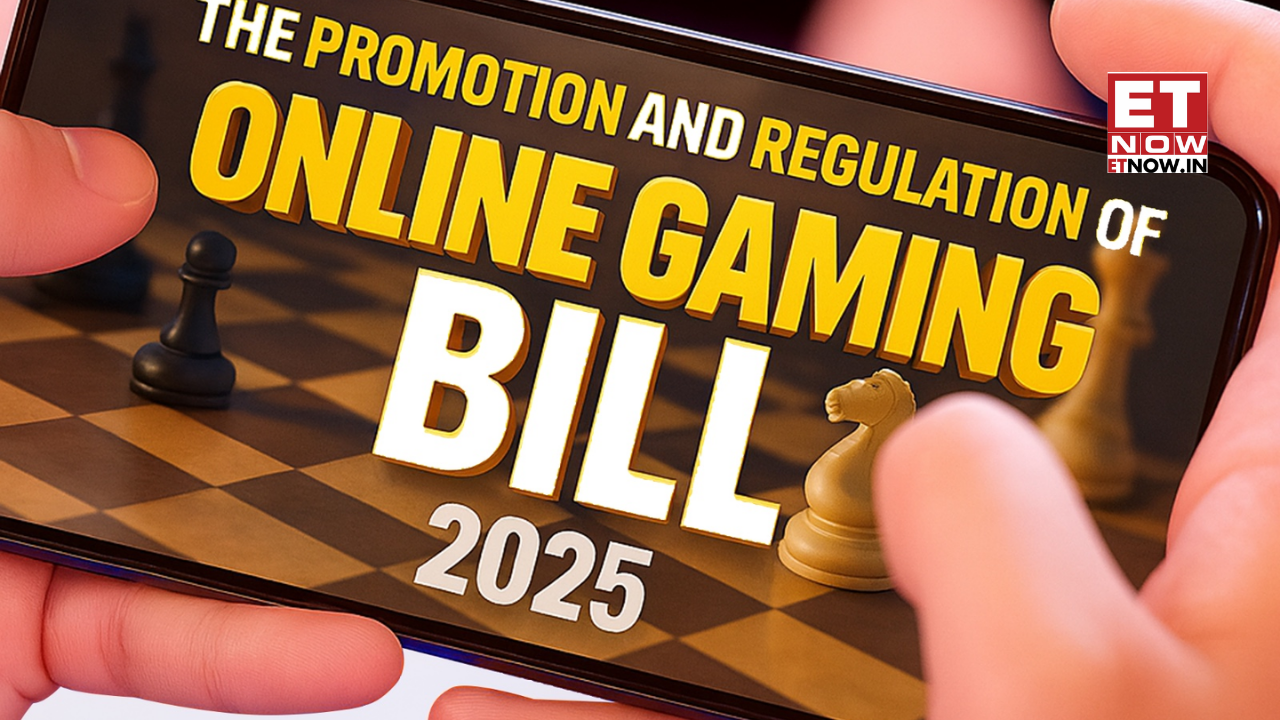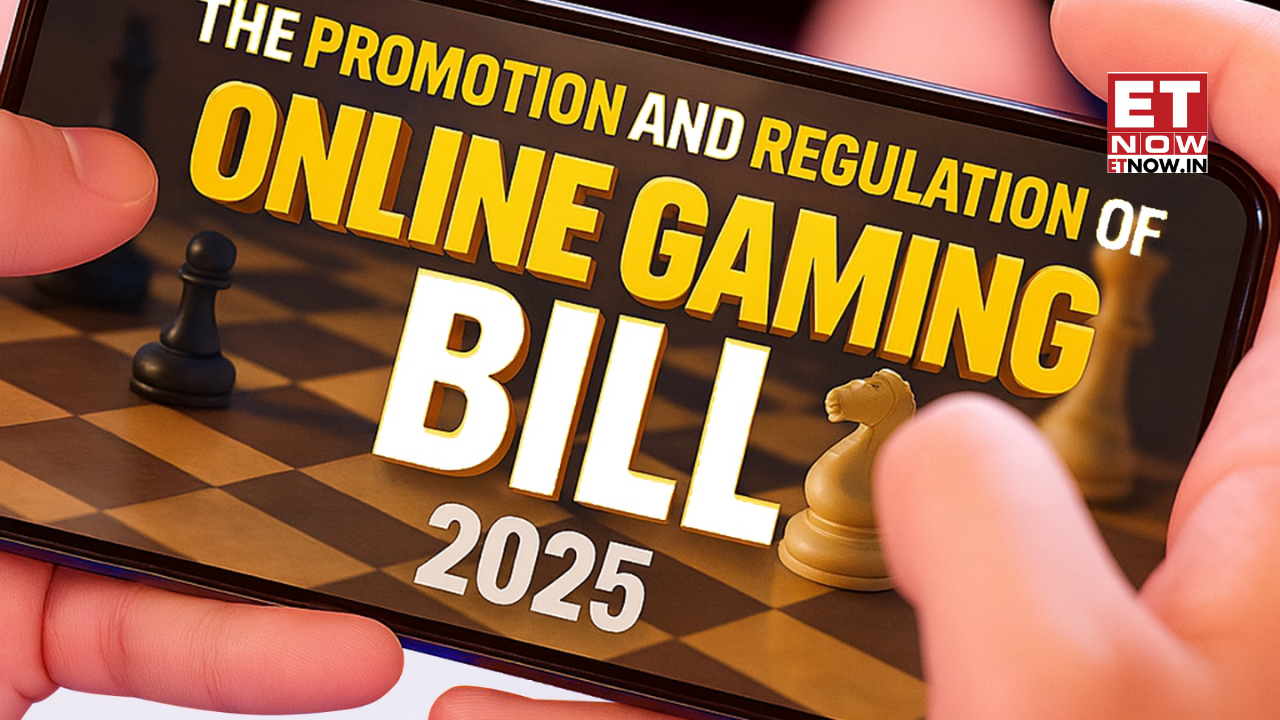Premium Updated Aug 22, 2025, 07:25 PM IST
Online Gaming Bill 2025: Online money gaming platforms have led to widespread harm, including families losing their savings, young people becoming addicted, and in some tragic cases, suicides resulting from financial distress. The central government has recognised these dangers and responded with strong legislation.

Online Gaming Bill 2025: The fast growth of online money games has created serious risks for individuals, families and the country. Although digital technology has brought many benefits, these games have exploited loopholes in the law and caused deep social harm.
Article Highlights
The Promotion and Regulation of Online Gaming Bill, 2025, is designed to curb addiction, financial ruin, and social distress caused by predatory gaming platforms that make false promises of easy and quick money.The World Health Organization (WHO) has recognised gaming disorder as a health condition. The Bill allows India to embrace the benefits of digital innovation while protecting its citizens from the negative aspects of online gaming.The Promotion and Regulation of Online Gaming Bill , 2025, that has been passed by Parliament on August 21, 2025 and awaits the President’s assent, is a significant legislation aimed at protecting citizens from the menace of online money games while simultaneously promoting and regulating e-sports and other online social games. The Bill is designed to curb addiction, financial ruin, and social distress caused by predatory gaming platforms that make false promises of easy and quick money.
The World Health Organization (WHO) has recognised gaming disorder as a health condition in its International Classification of Diseases, describing it as a pattern of gaming behaviour characterized by a lack of control, the neglect of other interests and daily activities, and continued engagement in gaming despite negative consequences.
Online money gaming platforms have led to widespread harm, including families losing their savings, young people becoming addicted, and in some tragic cases, suicides resulting from financial distress. The central government has recognised these dangers and responded with strong legislation.
Despite this, the Bill takes a balanced approach. The government acknowledges the online gaming industry as a dynamic part of the digital and creative economy, offering substantial opportunities for innovation, cognitive development, job creation, and technological advancement. It supports e-sports, which are organised competitive video games, and promotes safe online social and educational games. The Bill clearly distinguishes constructive digital recreation from betting, gambling, and fantasy money games that exploit users with fake promises of profit.
Ultimately, the Bill allows India to embrace the benefits of digital innovation while protecting its citizens from the negative aspects of online gaming.
Online gaming sector in India: Types of games
The online gaming sector has seen rapidly in recent years and now stands as a major component of the digital economy. It is broadly divided into three distinct segments, each with its own features and implications for society.
Esports: This refers to competitive digital sports involving individuals or teams in organized tournaments. Success in esports is based on strategy, teamwork, and high-level decision-making skills.Online Social Games: Skill-based, casual games that are primarly skill-based and designed for entertainment, education, or social interaction. These games are considered safe and are not associated with negative social consequences.Online Money Games: Games that involve financial risks, relying on chance, skill, or a combination. These have raised serious concerns due to links with addiction, financial loss, money laundering, and, in some cases, suicide resulting from heavy losses.
Online Gaming Bill, 2025: Need of the Bill
The fast growth of online money games has created serious risks for individuals, families and the country. Although digital technology has brought many benefits, these games have exploited loopholes in the law and caused deep social harm.
Speaking in the Rajya Sabha, Union Minister for Electronics and Information Technology, Ashwini Vaishnaw said that according to an estimate, 45 crore people are negatively affected by online money games and faced a loss of more than Rs 20,000 crores because of it. The Government has acted to close these gaps and protect citizens.
At the same time, the online gaming industry is one of the most dynamic and fastest-growing parts of the digital and creative economy. India is emerging as a major game making hub with rapidly developing capabilities, offering immense opportunities for innovation, employment generation and global competitiveness. However, there is a lack of coherent and enabling legal framework that can promotestructured growth of the sector and allow responsible gaming practices to evolve. Urgent policy intervention was therefore required for the sector.
Additionally, many gaming platforms operate from offshore jurisdictions. Regulating these platforms presents challenges in terms of extra-territorial jurisdiction and inter-state inconsistencies. It was therefore expedient for the Ministry of Electronics & Information Technology to legislate over the sector in terms of Allocation of Business Rules.
Addiction and financial ruin: Online money games encourage compulsive playing. Many players lose their entire savings chasing the illusion of quick profits due to which families have been pushed into debt and distress.Mental health and suicides: The stress of heavy financial loss has led to cases of depression and even suicide. The Bill seeks to prevent such tragedies by banning these exploitative platforms.Fraud and money laundering: Several platforms have been misused for illegal activities. Money laundering, which means moving illegal earnings through legal channels to hide their source, has been a major concern.Threat to national security: Investigations have shown that some gaming platforms were being used for terror financing and illegal messaging, which compromise the country’s security.Closing legal loopholes: Gambling and betting are already restricted under Indian laws such as the Bharatiya Nyaya Sanhita, 2023, and by various state legislations. But the online domain remained largely unregulated. The Bill ensures that the same standards apply in both physical and digital spaces.Encouraging Healthy Alternatives: The Bill also makes space for positive digital engagement. E-sports will be promoted as a legitimate sport, while social and educational games that build skills and cultural values will receive government support.
Online Gaming Bill, 2025: Key Provisions
The Online Gaming Bill, 2025 lays down a comprehensive framework to promote safe digital recreation while prohibiting harmful practices linked to online money games. Its main provisions are as follows:
The legislation will apply to entire country and also to online money gaming service offered within the territory of India or operated from outside the country.
Promotion and recognition of e-sports
E-sports have been recognised as a legitimate competitive sport in India. The Ministry of Youth Affairs and Sports will prepare guidelines and standards for tournaments. Training academies, research centres and technology platforms will be set up to advance the sector. Incentive schemes and awareness programmes will also be launched to integrate e-sports into broader sports policies.
Promotion of social and educational games
The Central Government has been given powers to recognise and register social games that are safe and age-appropriate. These games may focus on education, culture, or skills. Dedicated platforms will be developed to distribute such content. Awareness campaigns will highlight the positive role of these games in building digital literacy and encouraging healthy recreation.
Prohibition of harmful online money games
The Bill imposes a complete ban on online money games. This applies to games of chance, games of skill, and those that combine both. Advertising and promotion of such games is strictly prohibited. Financial transactions related to these platforms cannot be processed by banks or payment systems. Authorities will also be empowered to block access to unlawful platforms under the Information Technology Act, 2000.
Establishment of an online gaming authority
A national-level regulatory authority will be established, or an existing one may be designated for oversight. Its functions will include categorising and registering online games , deciding whether a game qualifies as a money game, and addressing public grievances. The Authority will issue guidelines, codes of practice and directions to ensure compliance.
Online Gaming Bill, 2025: Offences and Penalties
The Bill introduces severe punishments for those involved in online money games. Offering or facilitating online games can result in up to three years of imprisonment and a fine of up to Rs 1 crore. Financial transactions related to these games carry similar penalties. Advertising such games can lead to a jail term of up to two years and a fine of up to Rs 50 lakh.
Repeat offenders face harsher punishments, including imprisonment of up to five years and fines of up to Rs 2 crore. Offences under key provisions will be cognisable and non-bailable, which means police can arrest without a warrant and bail is not a right.
Corporate and Institutional Liability
Companies and their officers will be held accountable for offences. However, independent directors and non-executive directors, who are not involved in day-to-day decisions, will not be punished if they can show that they acted with due diligence.
Powers of investigation and enforcement
The Central government may authorise officers to investigate, search and seize both digital and physical property linked to offences. In certain cases, officers will have the power to enter premises and make arrests without a warrant. Investigations will follow the provisions of the Bharatiya Nagarik Suraksha Sanhita, 2023, which governs criminal procedure in India.
The Central Government is granted the power to frame rules for promoting e-sports and social games, recognising and registering online games, and overseeing the operations of the Online Gaming Authority. It can also create rules on any other matters necessary to enforce this law.


